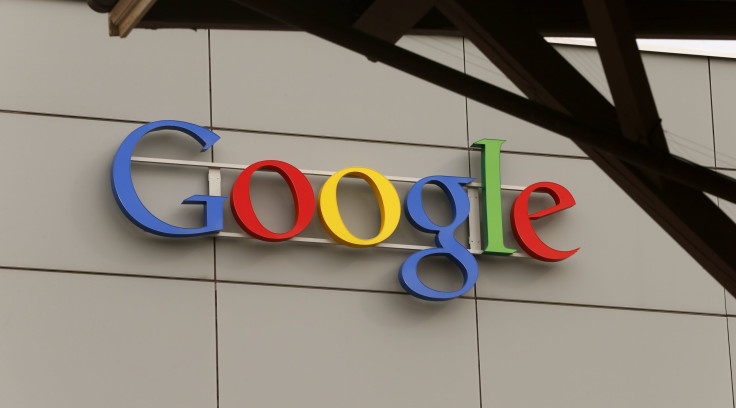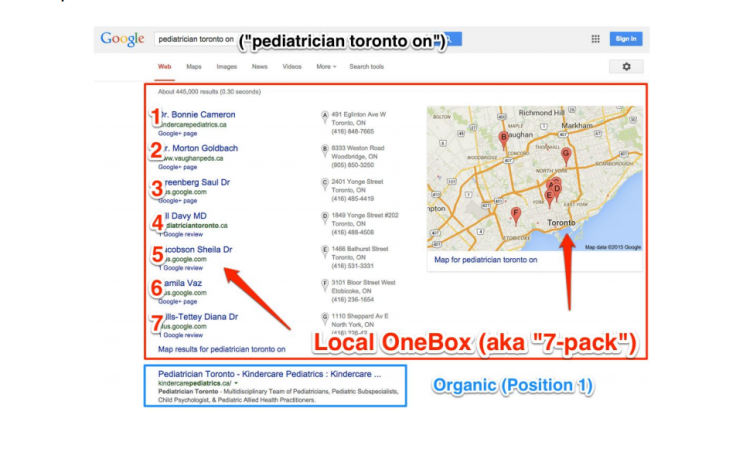Google Is Making Your Search Results Worse: Study

When you type a term into Google and hit return, you don't just get search results, which are what the industry refers to as "organic search." Depending on your query, Google can also bring up a few results not from the wider web but from Google itself -- search for "2+2" and you'll get a calculator box, for example.
But one type of Google search box has raised the ire of consumer watchdogs. When users search for a local query -- like "Brooklyn coffeeshop" -- Google displays a box of results from its own products on top of the organic results. So instead of a Yelp listing for a java joint in Williamsburg, you'll get a package of seven Google Plus listings.
It's no secret that Google prefers its own apps and services for its "local OneBox" search results. Google insists that its decisions deliver better results for the consumer, but a new study published over the weekend disagrees, stating "when it comes to local search, Google is presenting its users with a degraded version of its search engine."

The Yelp-sponsored study, authored by Columbia Law School professor Tim Wu and Harvard Business School's Michael Luca, compared Google's default search results with those derived through a browser plug-in called Focus on the User - Local. The plug-in takes Google's organically derived search results and puts them in the Google OneBox where its Google Plus results usually appear. "They reprogrammed the Google search engine to populate the OneBox with what [Google's search algorithm PageRank] was saying was the best stuff," Wu said in an interview with International Business Times.
"Google says they are using OneBox to create a better thing for consumers, and sometimes, as our A/B testing shows, they’re not," Wu said. "They’re actually degrading their own search when they’re facing someone they’re nervous about. I think that’s just not very Google-y. They’re not giving you the best product."
The results are striking. According to the study, users are 45 percent more likely to engage with search results when they're organic. The 2,690 subjects surveyed ended up preferring organic search to Google Plus because of subtle cues, like the number of reviews. The results indicate that consumers prefer results from specialized services like Expedia, Yelp and ZocDoc to Google's own Google Plus listings because, as Wu argues, users can sense what's a good search result and what's bad-quality content.
"Some of the Google Plus stuff looks a little spammy. Why does the most famous restaurant in New York have three reviews, you know?" Wu said. "My more-general thesis is, wherever Google Plus goes, bad things follow. There’s a war between what I would say is the true soul of Google and Google Plus."
"So I’m kind of calling on Google to be more Google-y, and I’m fighting for Google over Google Plus," Wu added.
When it comes to local searches, the study reveals that users are less likely to click on nonorganic results, suggesting that Google search isn't as good as it could be if Google were to ditch the promotion of its own services -- a key to proving consumer harm, which, according to the authors, is "relevant to nearly any competition law one might care to invoke."
Google's empire is built on search, and, increasingly, its dominance in the space is being probed by antitrust authorities. According to analytics firm StatCounter, Google controls 75 percent of the U.S. search market, excluding searches from mobile devices.
Google on Monday gained a six-week extension to reply to recent European Union antitrust charges that it diverts traffic from rivals to its own sites through search boxes like the local OneBox. In 2012, an internal Federal Trade Commission report said the agency should sue Google over similar practices, although the FTC ultimately announced that the company had not violated anti-competition statutes.
The study was "financially supported by Yelp," which compensated Wu for travel and his time. The study also made heavy use of a browser plug-in called Focus on the User - Local, which was initially developed by engineers at Yelp and TripAdvisor. Yelp is one of the companies most affected by Google's use of the local OneBox. Google did not immediately respond to a request for comment. When asked for comment, Yelp provided this video:
© Copyright IBTimes 2024. All rights reserved.






















